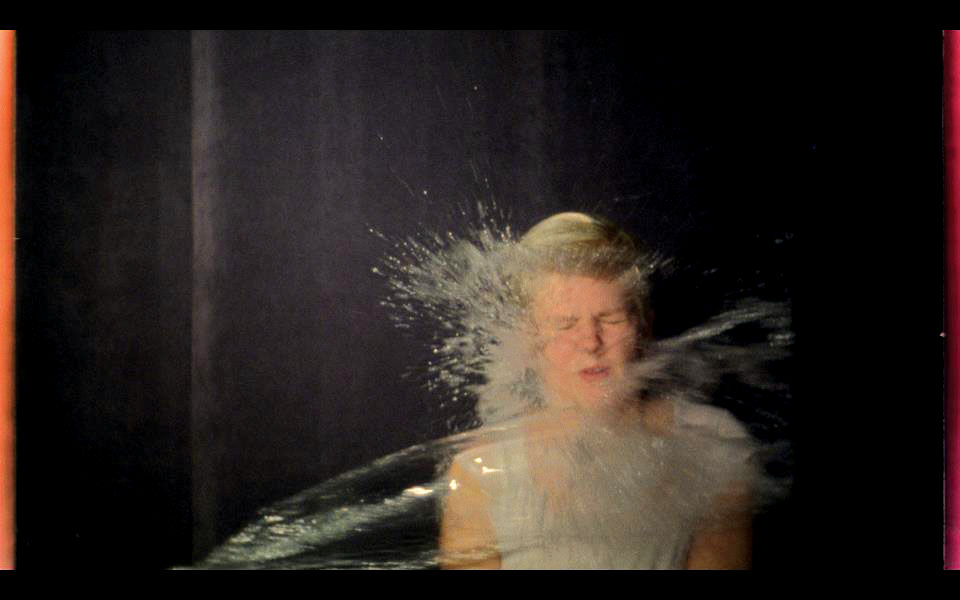York film BFA Ashlee Mitchell represent the onslaught of female filmmakers in the industry.
Hands grab at a girl’s face. An uncomfortable and overweight man takes his shirt off. Topless women stand “plaintively, looking at nothing in particular. There’s dye in water, and a woman’s face is being groped by a multitude of hands.
This is second-year film production student Ashlee Mitchell’s provocative alt film about body image and insecurities, Lude.
Shot on 16mm film as part of the requirements for her BFA film program, the film is a mix of old and new, considering its technological specifications, subject matter, and the fact that it’s directed by a woman.
“What I realized from directing this alternative film is you just have to act like you know what you’re doing, and think every decision you’re making is the right one,” says Mitchell. “It’s about acting like you’re 100 per cent confident, and then people are confident in you.”
Mitchell arrived at the film industry at an opportune time. At this year’s Sundance film festival, half the films were directed by women—a first for any major festival.
Sex and social discourse were the big topics tackled at the festival, with the Grand Jury Prize going to the social drama, Fruitvale, and the directing award going to Jill Soloway’s debut feature, Afternoon Delight, which tackles issues of oppression of women. These are the kinds of films being made now by a diverse group of independent filmmakers.
While the the Kathryn Bigelows and Sofia Coppolas of Hollywood—a rare breed—are often touted as examples of how women are catching up to men, female filmmakers still make up a small percentage of all film directors. But while Hollywood remains a gentleman’s club, Sundance is a different story.
However, Mitchell says she has a “range of emotions” about Sundance.
“Sundance can stand up and say, ‘Look at us! Look at us! Fifty per cent of our directors are female!’ But they can have discretion on what films get selected,” she says.
According Melissa Silverstein of Indiewire.com, only nine per cent of films to get theatrical distribution in 2012 were directed by women. Additionally, women make up a large proportion of below-the-line crew on film sets, but a very tiny fraction of key film crew roles.
Mitchell says the only moment she had to prove herself as a woman was when she went for her York film interview.
“The only people in that room were men,” she says. “I didn’t realize up until that point that this is what I was getting into. I’ve never felt I’ve had something to prove.”
She says Hollywood would be a more demanding environment in terms of having something to prove, but that “independent filmmaking is easier to get into because the budgets are smaller.”
Kelly Paoli is another young filmmaker at York, about to graduate from the screenwriting program with a web series, The Fall, which she’s had a heavy creative hand in, and numerous other films written. Her outlook is more positive.
“I think the film industry tends to be a male-dominated world, and more female directors makes it really interesting,” she says.
Paoli sees the emergence of women in film happening on all levels, including here at York.
“In my year, I’m the last girl [to stay in the program],” she says. The two other female students that began the program with her have since dropped out.
Despite the gender gap, the goal is to make good movies.
Mitchell says if her gender influences her work, it’s on a subconscious level.
“I don’t have a choice in the matter,” she says. “I’ve been told certain things by society and that’s [affecting] a certain way that I think. And I think that anyone who’s adhering to the guidelines that society has set [for] their gender is subject to that. But on a conscious level, I’m not thinking, ‘I’m a woman, I’m making certain films.’”
“Ultimately, you want your stories to impact people,” says Paoli, talking about Sundance. “But at the end, I’d [also] like to know I’ve reached out to a lot of people.”
With Lude, Mitchell had to choose which route she would take—the independent approach, or Hollywood.
She doesn’t hesitate.
“I like independent filmmaking more because you can get away with riskier material,” she says.
Paoli takes the other side.
“Hollywood,” she says, smiling. “Because where’s the fun without a challenge?”
Abdul Malik, Staff Writer





